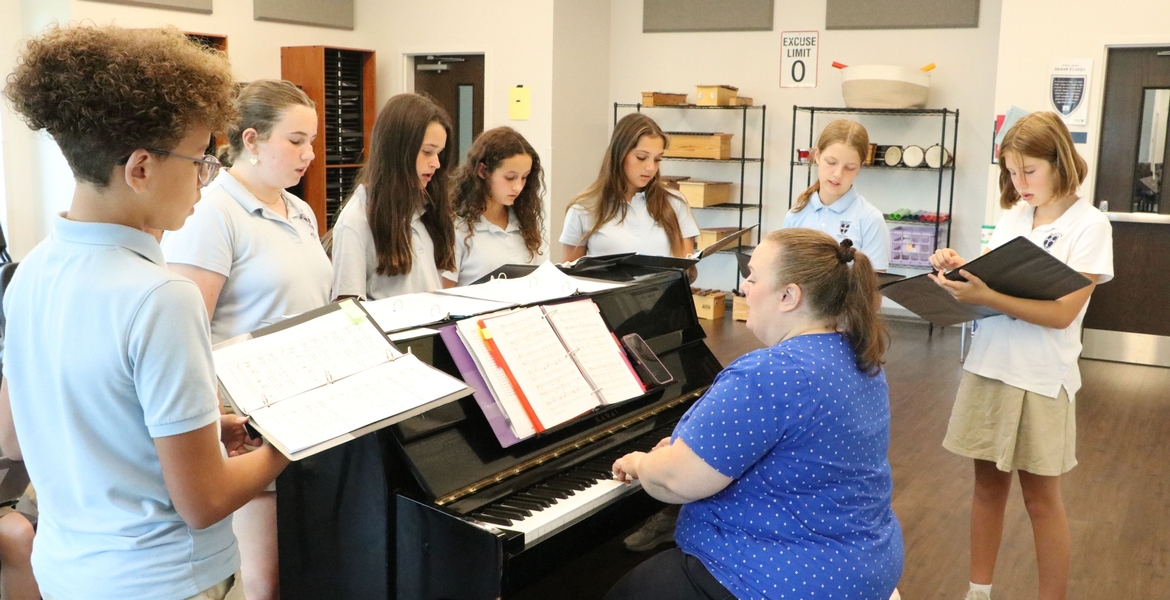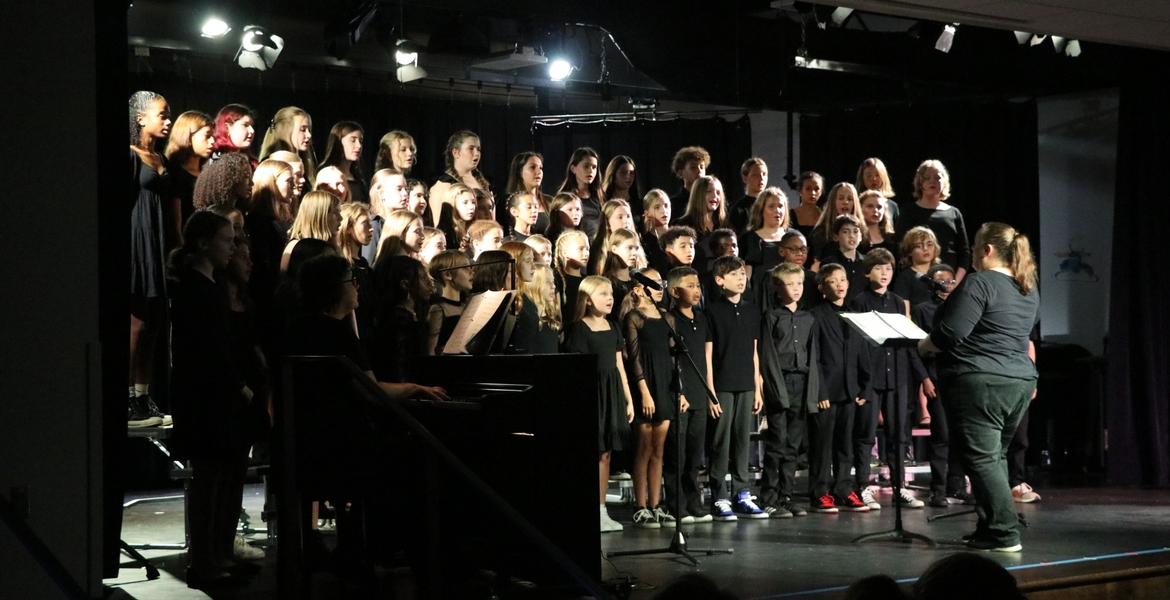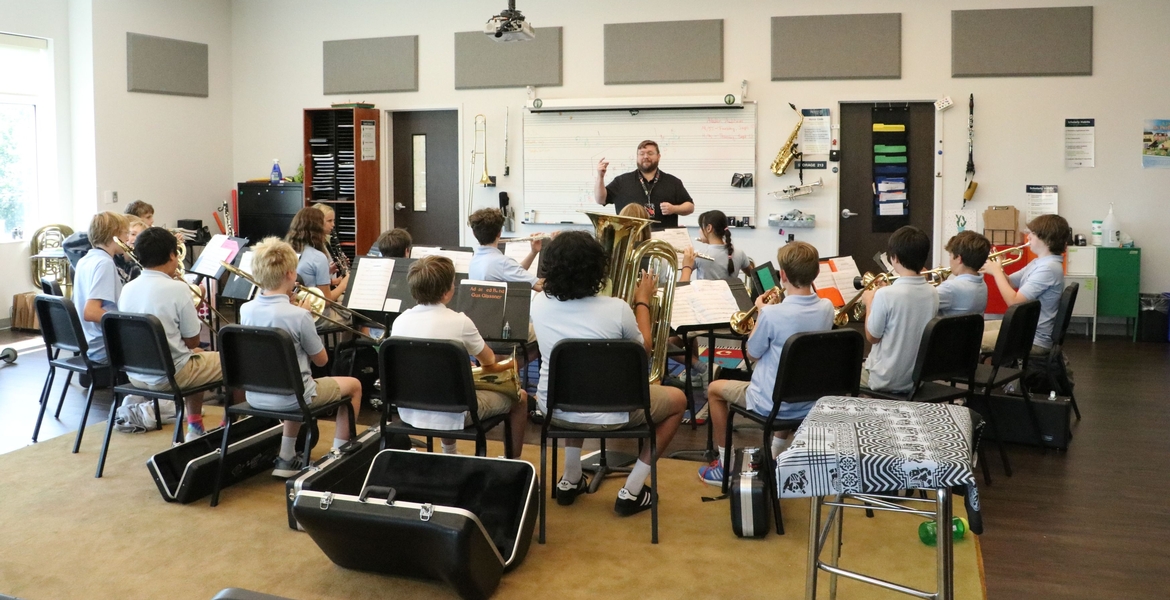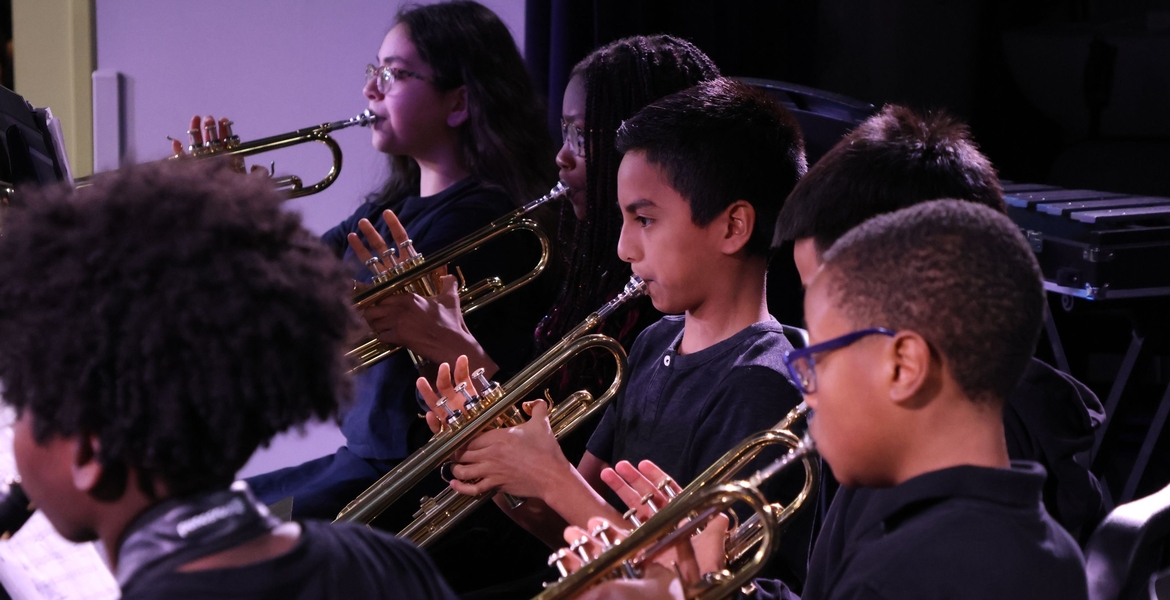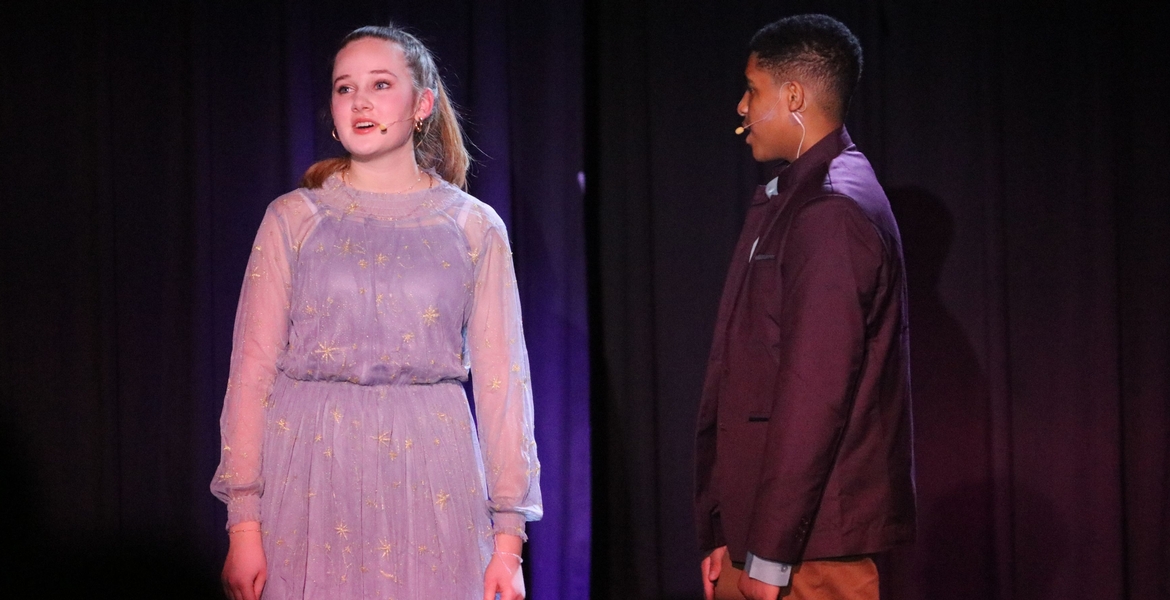Visual Arts
Trinity’s art curriculum follows the pedagogy of Teaching Artistic Behaviors (TAB), a methodology that is student-focused, choice-based, and teacher-facilitated. The learning environment is designed to provide centers or mini art studios complete with instructional information, menus, resources, materials and tools.
Students move independently between centers, utilizing materials, tools and resources as needed in their art making, such as painting, clay or printmaking. Centers are arranged to provide students with independent learning opportunities. We value the process of art as children as well as students as artists. It is the responsibility of the art teacher to guide students through the art curriculum in an engaging and thought-provoking way. Edmund Feldman states, “...art is a universally human act,” so its importance is held in high regard. Nowhere is this more apparent than in the art room at Trinity Episcopal School where students are given the opportunity to learn while engaged in the process of creating something new. Although the product is usually fantastic, the process-based learning is where the beauty is!
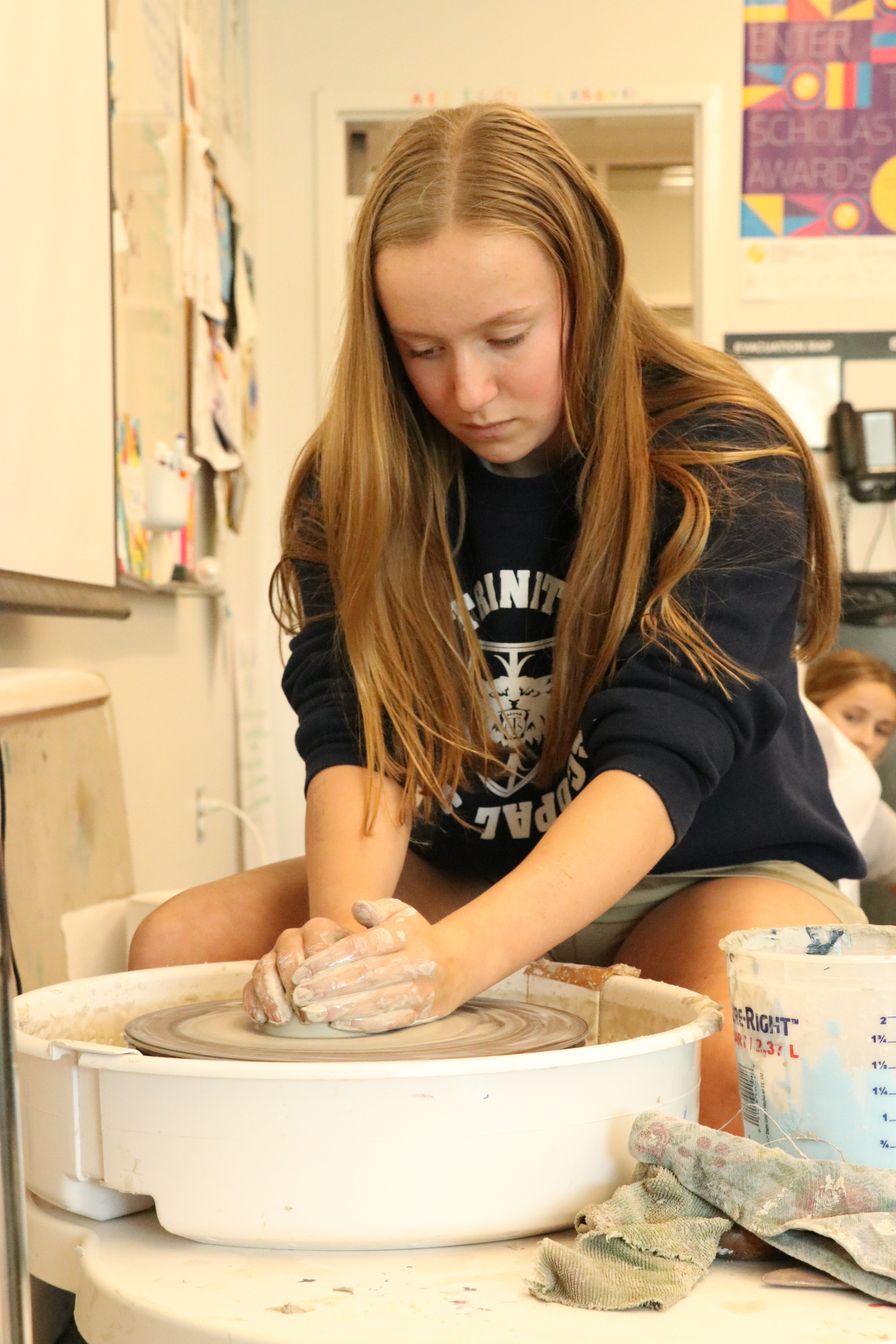
Performing Arts
Trinity’s performing arts program reflects our commitment to a well-rounded liberal arts education with a focus on each student’s creative expression.
6th Grade students choose from one of two ensembles: choir or band. 7th and 8th Grade students who decide to continue in an ensemble can choose Advanced Band or Advanced Choir. The music program provides many opportunities for individual growth and fosters every child’s innate love of music. Ensembles perform at chapels, commencement, and various venues outside of school.
Middle School students may also choose to take the drama elective within their schedule, or participate in the winter play or spring musical.
Healthful Living: Physical Education
We believe that all students should have the opportunity to discover and enjoy lifelong activities and sports. Middle School physical education classes teach lifelong exercise and fitness habits while developing skills for athletics.
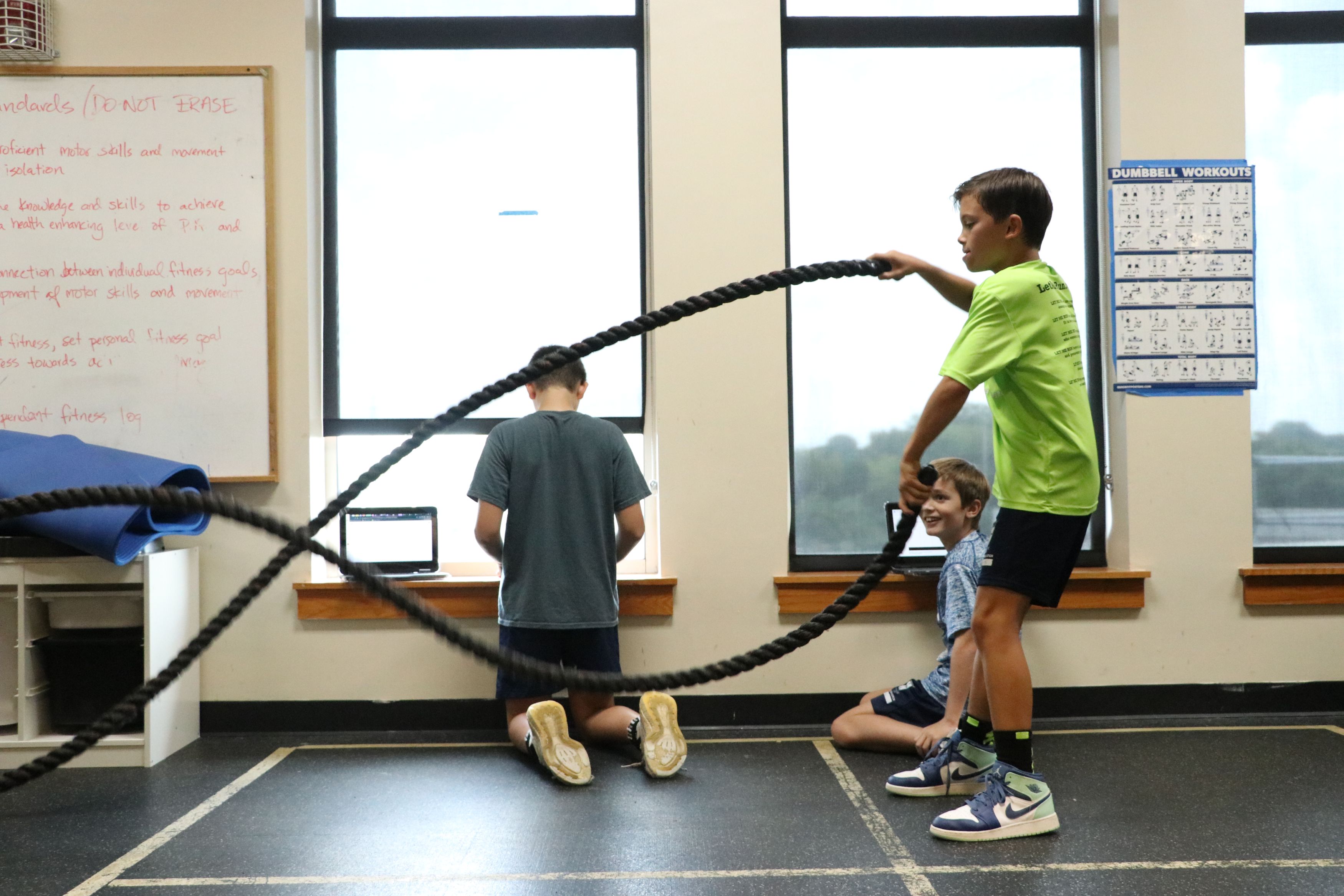
Faith Studies
Faith Studies classes, an integral part of Trinity’s overall curriculum, ask our students to be reflective servants, thoughtful stewards, and critical thinkers. Our chaplains collaborate with faculty to integrate faith-based coursework and community service into other subjects. This complements and reflects our belief that all life has a spiritual dimension. We embrace the religious diversity that exists within our community and affirm our willingness to listen to, honor, and learn from those whose perceptions of God’s mystery differ from our own.
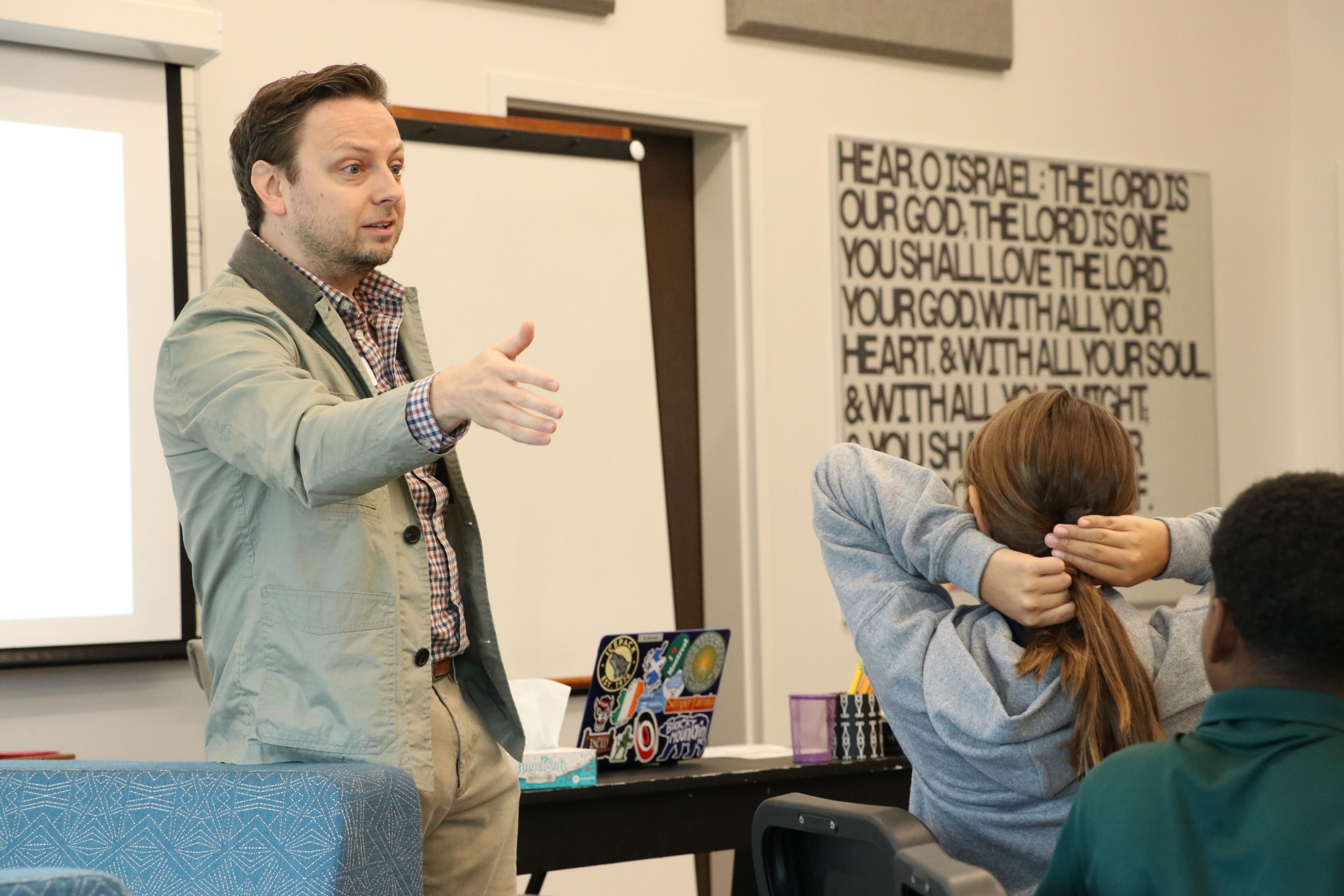
Students participate in a worship experience three times a week: Greet the Week on Mondays, a Middle School chapel on Wednesdays, and a community chapel every Friday morning, where the entire school gathers together.
Guest preachers and presenters who represent a variety of religious traditions and expressions are part of the chapel experience. We are guided by the “Book of Common Prayer” for our worship format and the Revised Common Lectionary and other resources for daily worship.
Social Issues Seminar
The 8th Grade Seminar Course is framed around Trinity’s Embracing Diversity essential questions, which call on each community member to engage critically and empathetically in the world around them. In this course, students explore the questions of “Who am I?,” “Who are you?,” “Who are we together?,” and “What are we called to do?”
In pursuit of answers, students develop critical skills in active listening, civil discourse, personal leadership, community advocacy, and change-making. In the spring, students identify an area or issue of social change, study it using action research, create a plan for advocacy, and then implement that plan during an advocacy trip to Washington, D.C., in May.
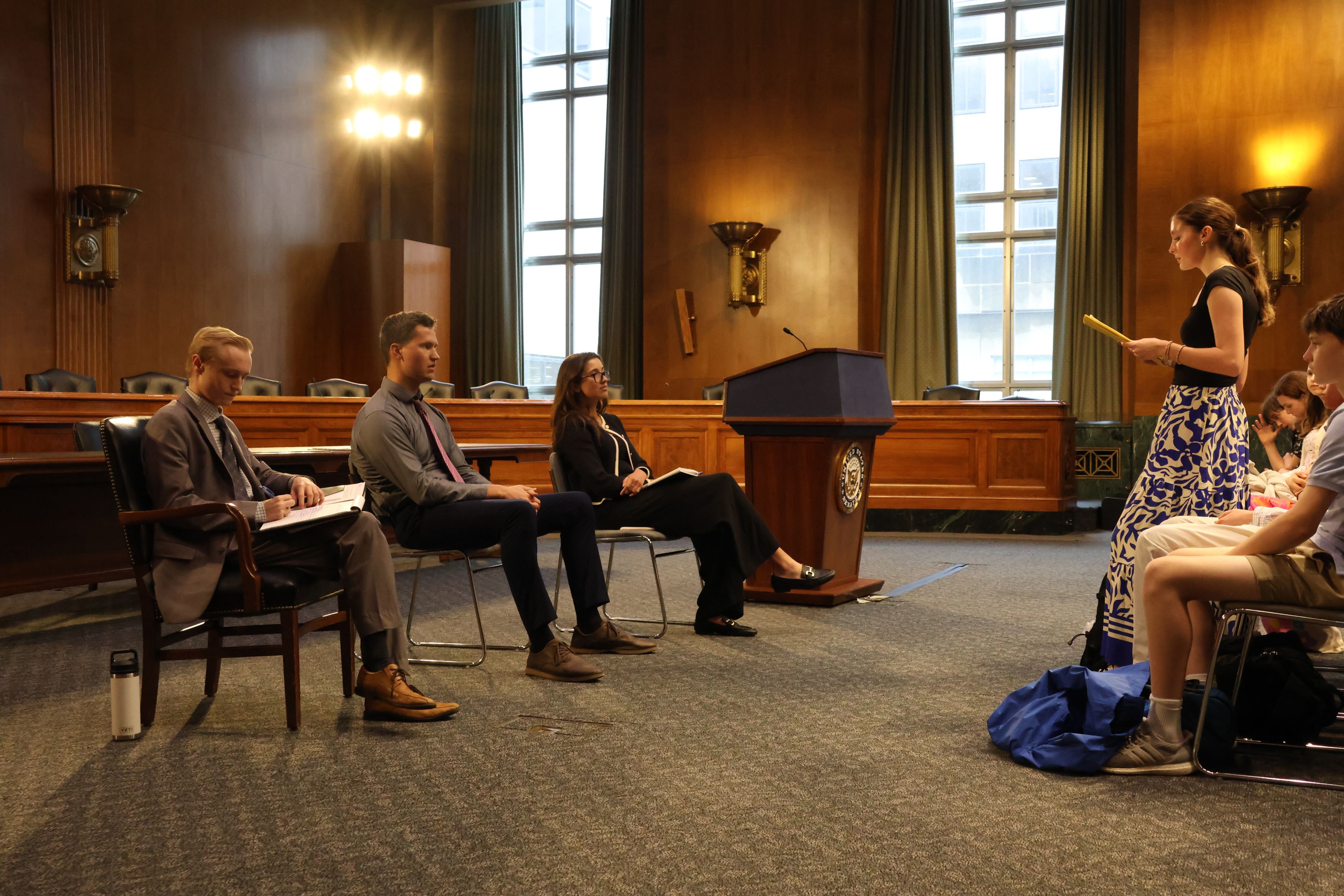
This interdisciplinary course is fully integrated with the 8th Grade service-learning project, which calls on students to reflect on and investigate issues in the local community and to serve as stewards of their neighborhood.
Koinonia
A strong school community enhances students’ success. In Middle School, each student belongs to a Koinonia with 10-12 other Middle School students and one adult leader.
Koinonia is a Greek word for “fellowship” or “communion” often appearing in the New Testament in reference to the disciples of the early church who gathered in small groups to tend to the social/emotional needs of one another and build community.
Koinonia groups gather every morning for check-in and twice a week for activities that include team-building games; tasks that help develop group identity; lessons around diversity, belonging and identity; intramural sports, challenges between Koinonias, and discussions specific to the needs of our Middle School community.
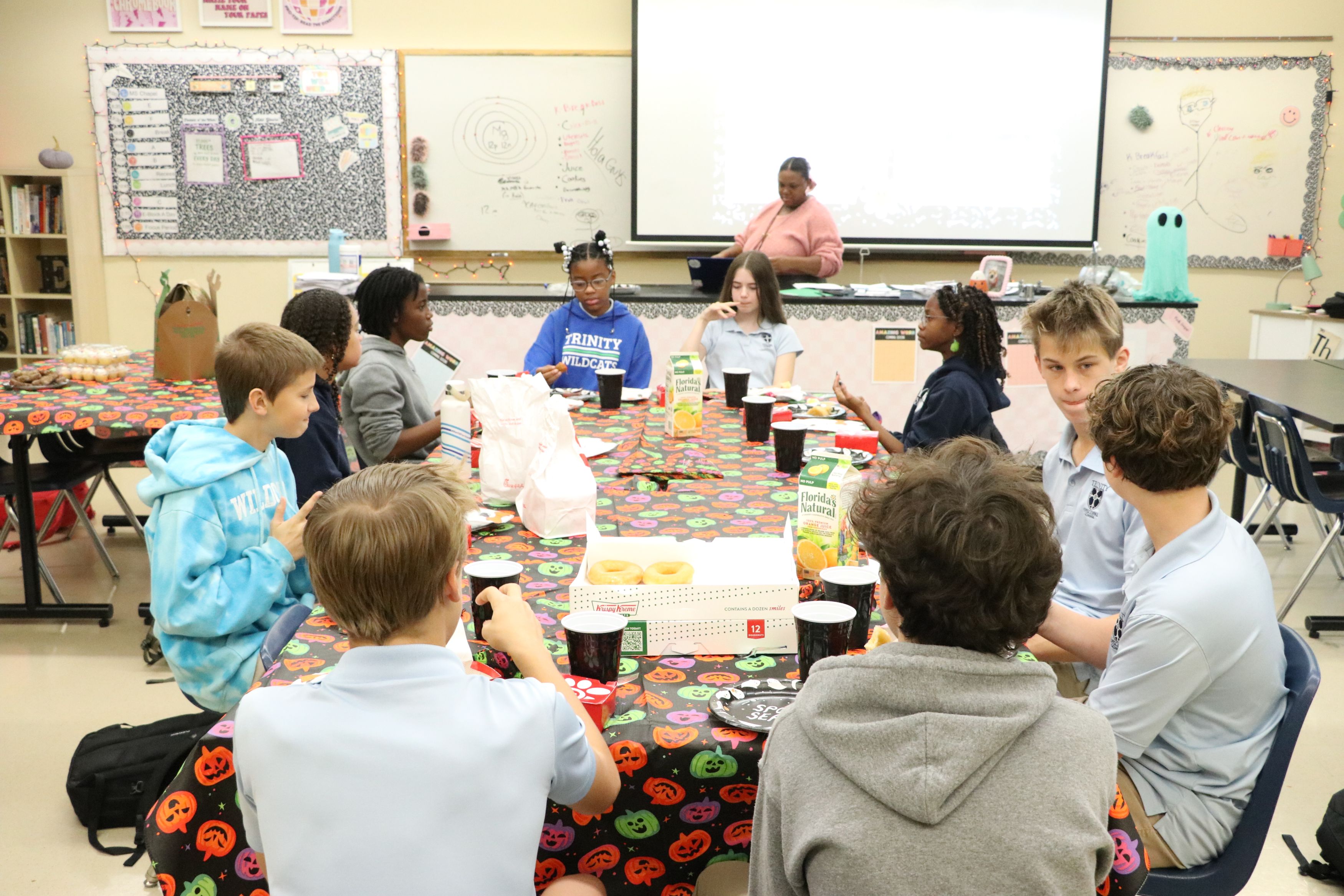
This structure ensures that each student has at least one adult in the school community s/he knows well and who can be trusted to know the student well. That adult becomes a coach and advocate for the student in all realms of his/her life at Trinity and a liaison for the parents. The Koinonia lives into its name as members get to know one another and learn to accept, affirm and support one another. In this safe environment, students can risk discovering and defining themselves.

